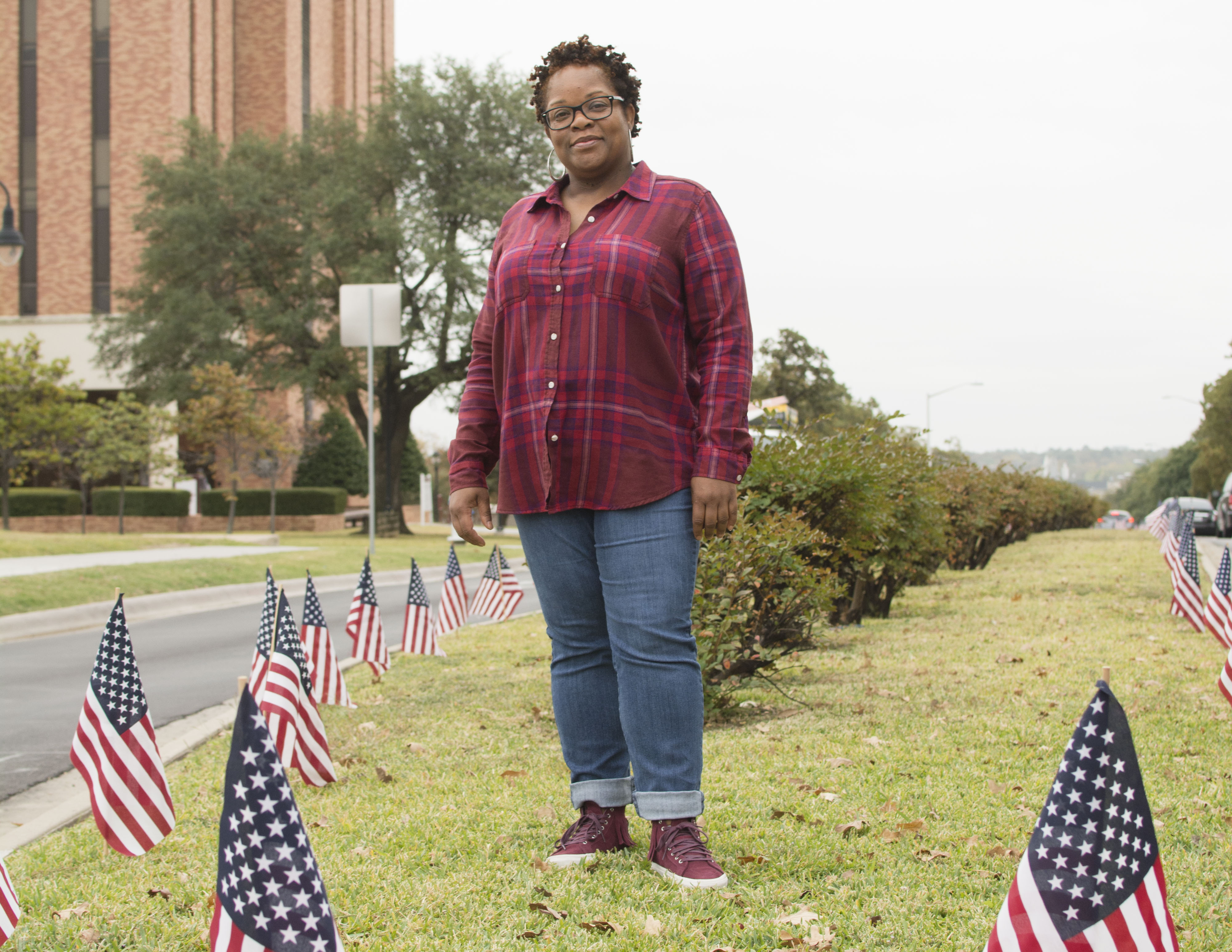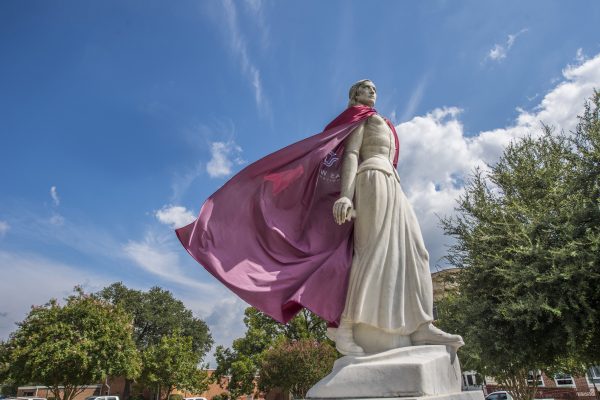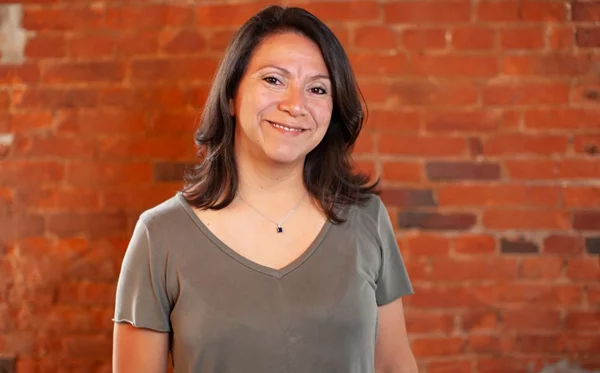TWU is a university that embraces the non-traditional student, but it takes the extra step when it comes to supporting its veteran students; it has just been named a Military Friendly School for the eighth consecutive year.
TWU’s success in serving its student-veterans is due in large part to its remarkable staff. Retired U.S. Army veteran Alex Alvarado works as the certifying official for veteran education benefits, and he is able to help Pioneer veterans forge a path through their educational journey because he can relate to their experience. Though Alvarado’s primary duties are advising and certification, he calls upon this shared experience to help student-veterans find success. “Because we’re vets, we are close knit: no matter where you are, no matter which branch. The veteran is a totally different type of person,” said Alvarado, “I’ve had veterans come into my office, and they’ll sit there for an hour just to unload. That’s fine with me. I have an open door policy. So any veteran can come talk to me… for whatever reason.”
Student Veterans Association: an organization by veterans for veterans
Alvarado accomplishes his duties in conjunction with Director of Veteran and Non-Traditional Student Services Brittanie Meyer, who serves as the advisor for TWU’s Student Veterans Association. The SVA seeks to “support veteran and active military students by connecting them to resources, helping with the transition to college life, advocating for their unique needs, and supporting their academic success,” accordingto its website.
SVA President Nikki Perez points to Meyer’s dedication and Alvarado’s passion as the fuel that drives the SVA’s success. “I literally feel like I’m one text or phone call from anything I need. I go to them more so than I do my department,” said Perez.
The SVA makes its home in the Veterans Center in Jones Hall, and its uniquely tailored to provide a quiet and comfortable study environment for student-veterans. They provide food and beverages, computers that are for student-veteran use only, and a lounge area for relaxation. Perez understands better than most that some student veterans might be hesitant to self-identify as veterans. “I get it; you want to blend in. You can’t blend in if you’re identified, and there are some stereotypes; there are some stigmas with being a veteran,” said Perez, but she issued an open invitation to any student-veteran on the fence: “We’ve got coffee! Just give us a try and check us out. We get you. We are you. We’re just like you. We’re going through the same thing. We’re trying to get through this, and we can be your buddy.”
Perez is also close to accomplishing one of her primary ambitions as SVA president, and she hopes to soon be providing Counseling and Psychological Services sessions at the Veterans Center. She expressed that student-veterans often feel like they’re “drowning but you don’t even have enough space to tell anyone you’re drowning. . . you feel like, ‘I should already know this; I don’t want to raise my hand and say that I need help because I’m used to being the strong one.’” Perez hopes that providing these sessions will give student-veterans more direct access to CAPS. “I want to give people that space and that freedom to give themselves permission to reach out to CAPS because they’re there to help us,” said Perez.
Perez also stressed that the SVA can be there for traditional students that have veteran parents, and she invited anybody with questions to contact the SVA.
SVA President leads by example
Perez herself is a shining example of the good that can come from TWU’s deliberate focus on helping student-veterans succeed. Perez is a veteran of the Navy and served in Norfolk, Virginia and Pensacola, Florida, and she was just the second female permanently attached to her first duty station.
A social work major, Perez has taken advantage of the unique environment TWU provides for both women and veterans to practice her future profession. “I have a passion to work with women veterans because I am a woman; I think we’re underserved, so I definitely want to help. We have some different issues than the male veterans, so I have a passion for that,” said Perez, “I just want to help as many people as I can to not only transition from being active duty to a civilian, but to help them thrive in the civilian world because for some people in the military that’s their first job. They don’t know what it’s like to work out there in the civilian world, and it’s not as structured as the military is, so a lot of people fail, and they get frustrated.”
Perez is a senior and is nearing the completion of her undergraduate degree. “I love this place. I’m a little sad that I’ve got to go, but I know that’s the goal: to graduate. I felt extremely supported here,” said Perez. Perez is considering graduate school and she may end up sticking around at TWU to pursue a Masters in Social Work that TWU partners with UNT to offer; she is also considering pursuing a masters at Texas A&M Commerce. “I don’t want to stop now because I took a long break… I took a very long break; I need to keep going,” said Perez.
Vet Zone: providing safe places all over campus
TWU is extending its mission to provide safe spaces for veterans beyond the Veterans Center and the SVA. For the past four to five years, training seminars have been organized every semester that provide faculty and staff with the skills to assist veterans when they need it. Those that complete the training put up “Vet Zone” stickers outside their offices to mark it as a safe place for veterans to go if they need someone to talk to.
“The Vet Zone is [Executive Director for Campus Alliance for Resource Education] Amy O’Keefe’s brainchild, and she goes to national conferences promoting wellness activities for veterans on campuses,” said Reference Librarian Susan Whitmer. Whitmer is a veteran herself, and she has completed the training and proudly displays a “Vet Zone” sticker outside her office in the library. Whitmer recognizes the need for Vet Zones, and she believes they provide a valuable a necessary resource. “20 percent of people coming back from our Middle East wars have some kind of post-traumatic stress because it’s a natural reaction to a terrible situation. Having a Veterans Zone means that this is a safe place to be with like-minded individuals,” said Whitmer.
Whitmer believes programs like Vet Zone help make the campus what it is, and she sees even greater things in TWU’s future. “The push to make this a more military-friendly campus is real because it’s one of the top four priorities for our five-year plan. I’m just really proud that TWU is making veterans a priority because traditionally women aren’t what you think of when you think of veterans,” said Whitmer.
Whitmer also hopes that the Vet Zones around campus will help foster an inclusive environment for student-veterans that encourages them to self-identify. “We have about 15,000 students and only 2 percent identify as veterans, but when it comes time for graduation, there’s a larger percentage that ask for military cords; they’re just not identifying as veterans when they register,” said Whitmer.
Rounding out Veterans Week with Veterans Day on the Square
TWU is patterning with UNT Veteran Services and the Denton County Veterans Service to host Veterans Day on the Square. The event will feature remarks from TWU Chancellor Dr. Carine Feyten and UNT President Dr. Neal Smatresk. The keynote speaker will be Denton County Veterans Coalition President Chris Martin. Also in attendance will be SVA President Nikki Perez, and she will get to introduce speaker Major General Saunders, a TWU alumni. “I could sit and listen to Major General talk for hours. She is a hero of mine. She’s amazing. I adore her, and she is a huge champion for us,” said Perez.
Veterans Day on the Square will take place on Friday, November 10th from 11 a.m. to 2 p.m. and is open to the public. Come out and join TWU in thanking and honoring our veterans.







Be First to Comment